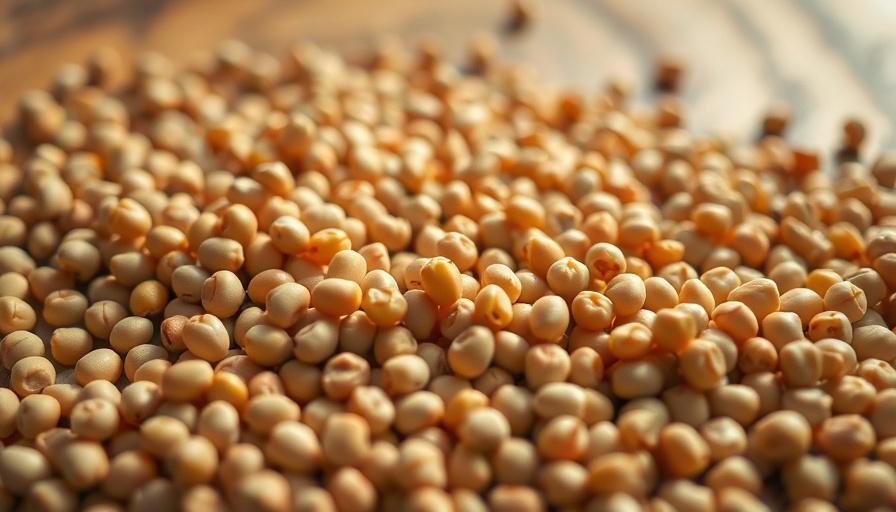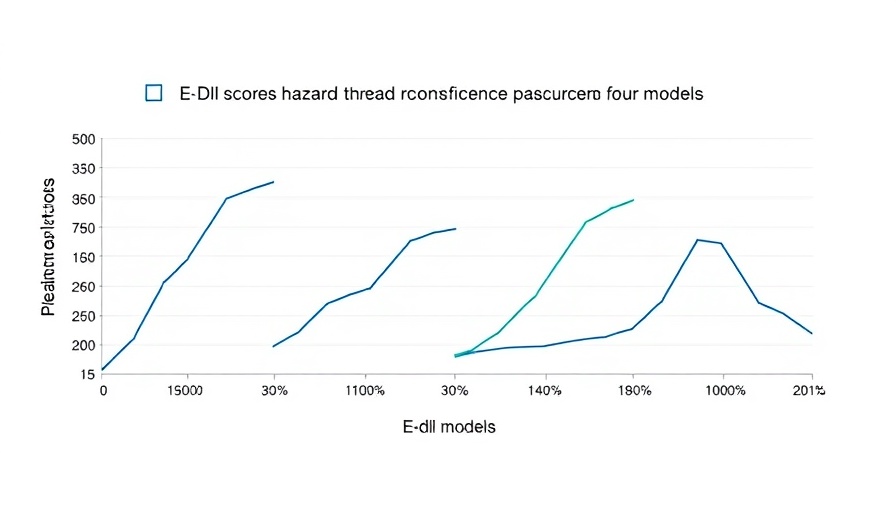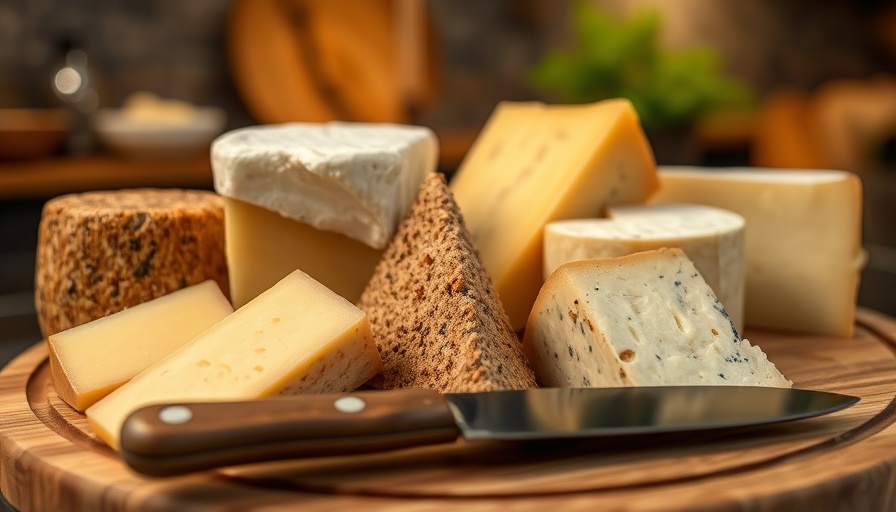
Unveiling Soy Isoflavones: Understanding Their Role in Health
The discussion surrounding soy isoflavones is layered, blending both potential health benefits and valid concerns over their consumption. As phytoestrogens, soy isoflavones have been celebrated widely for their estrogen-like properties which can significantly impact health. They are particularly noted for alleviating menopausal symptoms, supporting bone health, and possibly preventing hormone-related cancers—all attributes that serve as a beacon for those investing in longevity and anti-aging supplements.
Understanding Regulatory Perspectives on Isoflavones
In light of their popularity, particularly among health-conscious consumers aged 30-55, it’s crucial to scrutinize regulatory positions. The French Agency for Food, Environmental and Occupational Health & Safety (ANSES) recently reviewed soy isoflavones, creating a toxicological reference value (TRV) of 0.02 mg/kg for the general populace and 0.01 mg/kg for more vulnerable groups like children and pregnant women. While these benchmarks aim to protect public health, critics argue they neglect the potential health benefits associated with moderate soy consumption.
Spotlight on Scientific Evidence
A closer examination reveals that many health recommendations against these compounds are rooted in animal studies, which often can’t be directly applied to human physiology due to significant metabolic differences. For instance, rodents process isoflavones differently, raising questions about the relevance of these studies to human health. As enthusiasts of wellness exploration, understanding the intricacies of such studies empowers consumers to interpret scientific research towards their anti-aging and health goals.
Balance: Risks and Benefits
The dichotomy between the perceived benefits and risks of soy isoflavones is essential to understand. Banishing isoflavones completely might shield consumers from imagined risks, but it could also deprive them of the robust health benefits these compounds offer. For those looking into approaches like collagen for aging or incorporating omega-3 for longevity, it’s equally crucial to consider isoflavones as part of a comprehensive strategy that leverages various health-promoting dietary components.
Choosing Wisely: Nutraceuticals for Longevity
As we navigate a landscape filled with both supportive evidence and skepticism, the keys to making informed dietary choices lie in moderation and balance. The best supplements for aging should encompass a combination of nutrients like NAD+ supplements, rich sources of resveratrol, and adaptogens, which synergize with the properties of isoflavones. Embracing a holistic approach allows for the integration of diverse bodily needs while minimizing potential risks.
Concluding Thoughts: Empowering Your Health Journey
Ultimately, understanding soy isoflavones and their implications in nutrition should not be seen merely as a black-and-white debate but rather as part of the larger narrative of maintaining vibrant health across the lifespan. Engage with the nuances, leverage the science, and empower your choices through informed decisions about dietary sources, including the incorporation of isoflavones.
As health enthusiasts, staying updated on the evolving science behind dietary decisions propels our journey towards vitality and wellness. Tap into further resources and connect with nutritionists to enhance your understanding of supplements like CoQ10 and embrace products that offer longevity nutraceuticals designed for resilient health.
 Add Row
Add Row  Add
Add 




 Add Row
Add Row  Add
Add 


Write A Comment